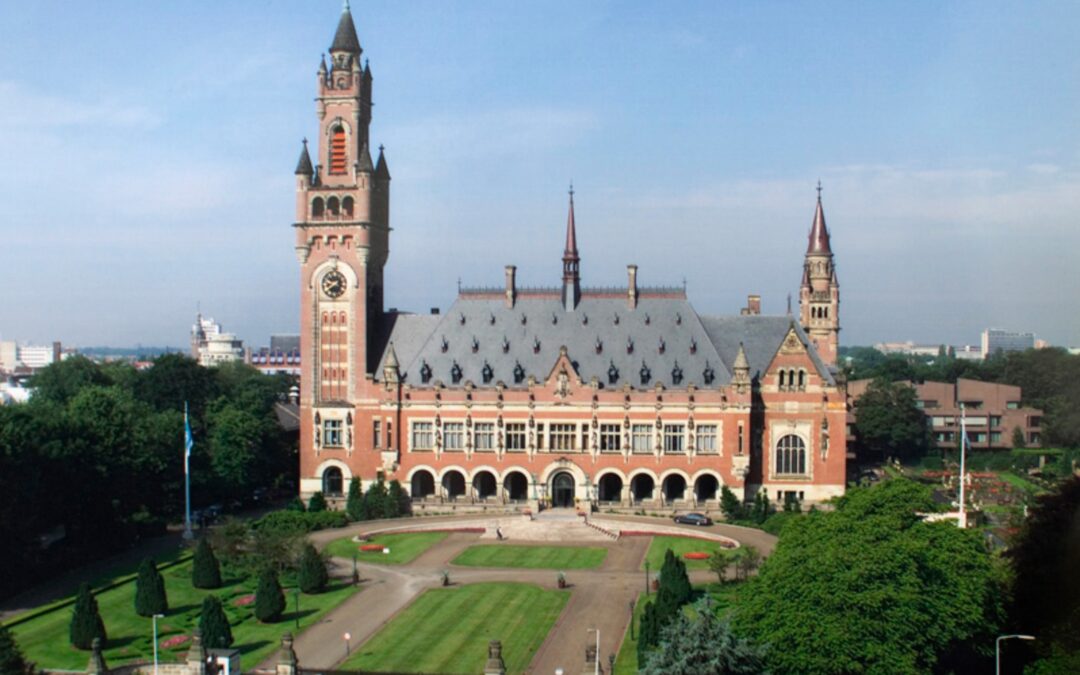
Dec 5, 2019 | Advocacy, Analysis briefs
Today, the International Commission of Jurists published a legal briefing on the hearing on provisional measures to be held at the International Court of Justice between 10-12 December 2019 in the case of The Gambia v Myanmar.
Questions answered include:
- What allegations does The Gambia make against Myanmar?
- What provisional measures has The Gambia requested?
- What are provisional measures?
- What is the process for requesting provisional measures?
- What factors are taken into account on a request for provisional measures?
- If the Court indicates provisional measures, are they binding on the parties?
- What is Daw Aung San Suu Kyi’s role in the proceedings?
Download:
Myanmar-Provisional Measures Briefing-Advocacy-Analysis Brief-2019-ENG (English)
Myanmar-Provisional Measures Briefing-Advocacy-Analysis Brief-2019-BUR (Burmese)
Contact:
Kingsley Abbott, Senior Legal Adviser and Coordinator of the ICJ’s Global Accountability Initiative, kingsley.abbott(a)icj.org
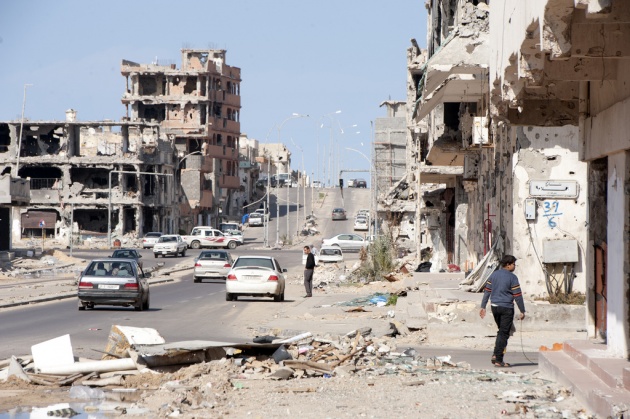
Dec 4, 2019
Today, the ICJ joined seven other non-governmental organizations calling on States to establish a Commission of Inquiry or similar mechanism for Libya at the 43rd session of the UN Human Rights Council from February to March 2020.
The mechanism should document human rights violations and abuses, identify those responsible for them, preserve evidence for use in future criminal proceedings, and publicly report on the human rights situation in the country.
“Impunity reigns in Libya and, without an overhaul of the criminal justice system, future investigations or prosecutions are unlikely to be effective,” said Said Benarbia, the ICJ’s MENA Programme Director.
“As negotiations for a ceasefire and political solution to the conflict in Libya continue, States cannot keep on ignoring accountability for the egregious human rights violations and abuses committed in the country,” he added.
In July this year, the ICJ released a report – Accountability for Serious Crimes Under International Law in Libya: An Assessment of the Criminal Justice System – which found that the legal framework in Libya does not meet international standards governing the rights to liberty and to a fair trial of detained or accused persons, or the rights of victims to a remedy and reparation.
Crimes against humanity and war crimes, committed by State and non-State actors on a widespread scale in Libya, are not penalized under domestic law at all. The definitions of crimes such as torture, enforced disappearances, extrajudicial killings and rape are also inconsistent with those under international law.
“While the International Criminal Court has jurisdiction over crimes against humanity and war crimes committed in Libya since 2011, it is not a panacea for all crimes perpetrated in the country, nor can it contribute to the development of viable institutional and legislative reforms needed for human rights and the rule of law to take root,” said Kate Vigneswaran, the ICJ’s MENA Programme Senior Legal Adviser.
At the 42nd Session of the Human Rights Council, Kate Gilmore, UN Deputy High Commissioner for Human Rights, and Ghassan Salame, Special Representative of the UN Secretary-General (SRSG) and Head of the UN Support Mission in Libya (UNSMIL), called for the establishment of an international body to investigate violations of international human rights and humanitarian law in Libya.
“States have been relegating accountability in Libya, purportedly in the interests of peace, for far too long, an approach that has continually proven to yield little in the way of a political solution or the cessation of human rights violations and abuses against the many thousands of victims. States should take heed of the SRSG and Deputy High Commissioner’s statements,” said Vigneswaran.
Other signatories to the joint letter are Amnesty International, the Cairo Institute for Human Rights Studies, the International Federation for Human Rights, Human Rights Watch, Lawyers for Justice in Libya, the Libya Platform, and the Women’s International League for Peace and Freedom.
Contact:
Said Benarbia, Director of the ICJ Middle East and North Africa Programme, t: +41-22-979-3817; e: said.benarbia(a)icj.org
Kate Vigneswaran, ICJ Senior Legal Adviser, t: +31624894664, e: kate.vigneswaran@icj.org, twitter: @KateVigneswaran
Libya-Letter to HRC-Advocacy-open letters-2019-ENG (open letter in English, PDF)
Libya-Open letter HRC_News-press release-2019-ARA (press release in Arabic, pdf)
Libya-Letter to HRC-Advocacy-open letters-2019-ARA (open letter in Arabic, PDF)
Photo credit: Image by European Commission DG ECHO
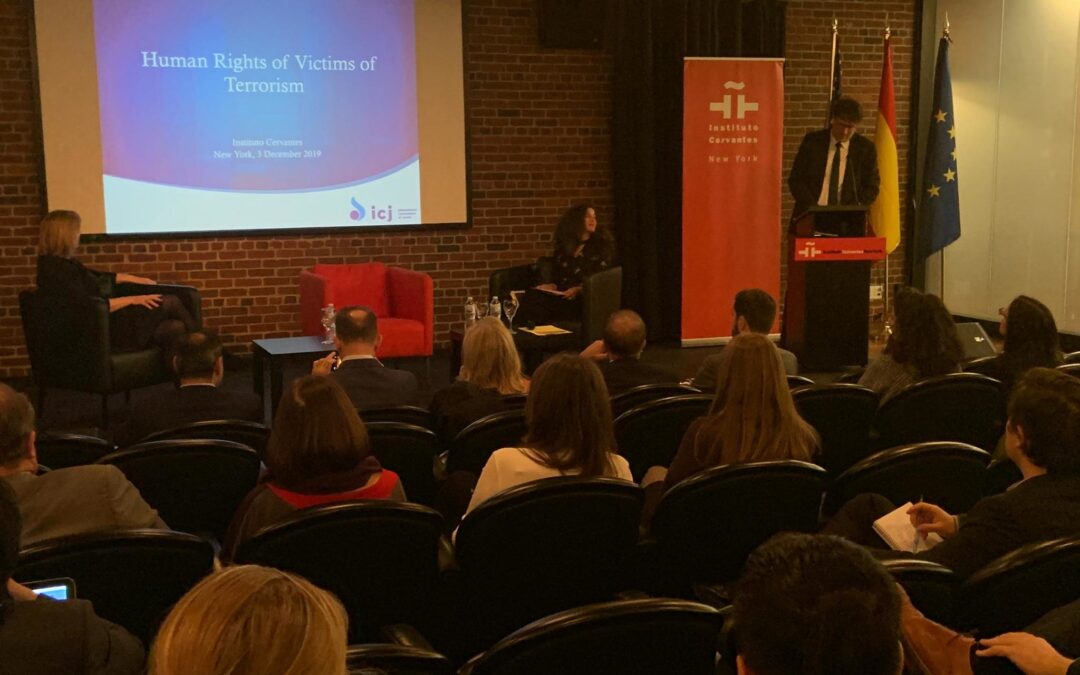
Dec 4, 2019 | News
The ICJ has highlighted the human rights of victims of terrorism in a presentation to States’ delegations to the UN in New York.
On 3 December 2019, ICJ Senior Legal Adviser Matt Pollard presented ICJ’s compilation, Human Rights of Victims of Terrorism, at an event organized by the Permanent Missions of Spain and Afghanistan and the UN Office on Counter-Terrorism (UNOCT), with participation by the UN Special Rapporteur on the promotion and protection of human rights and fundamental freedoms while countering terrorism.
In the presentation, the ICJ recognised the achievements of Spain and Afghanistan in establishing a Group of Friends of Victims of Terrorism, and in achieving consensus for a ground-breaking General Assembly resolution in June, and UNOCT’s ongoing work including the UN victims of terrorism support portal.
The ICJ also emphasised key elements such as: the essential role of victims’ associations and other civil society actors; the need to move beyond expressions of solidary to implement concrete measures of assistance; and the need for a human-rights based approach to victims of terrorism.
Among key issues, the ICJ highlighted: effective, rapid and simple access to assistance; access to justice and the truth; recognition and remembrance; avoiding exploitation and re-traumatization; preventing further attacks or violence, while respecting the rule of law and human rights; ensuring involvement of victims’ representatives in designing, implementing and assessing measures for victims; and the importance of international cooperation.
The presentation also looked forward to next steps towards concrete realization of the human rights of victims of terrorism, including through State’s responses to the call in the General Assembly resolution to develop and implement National Action Plans.
For more information contact matt.pollard(a)icj.org
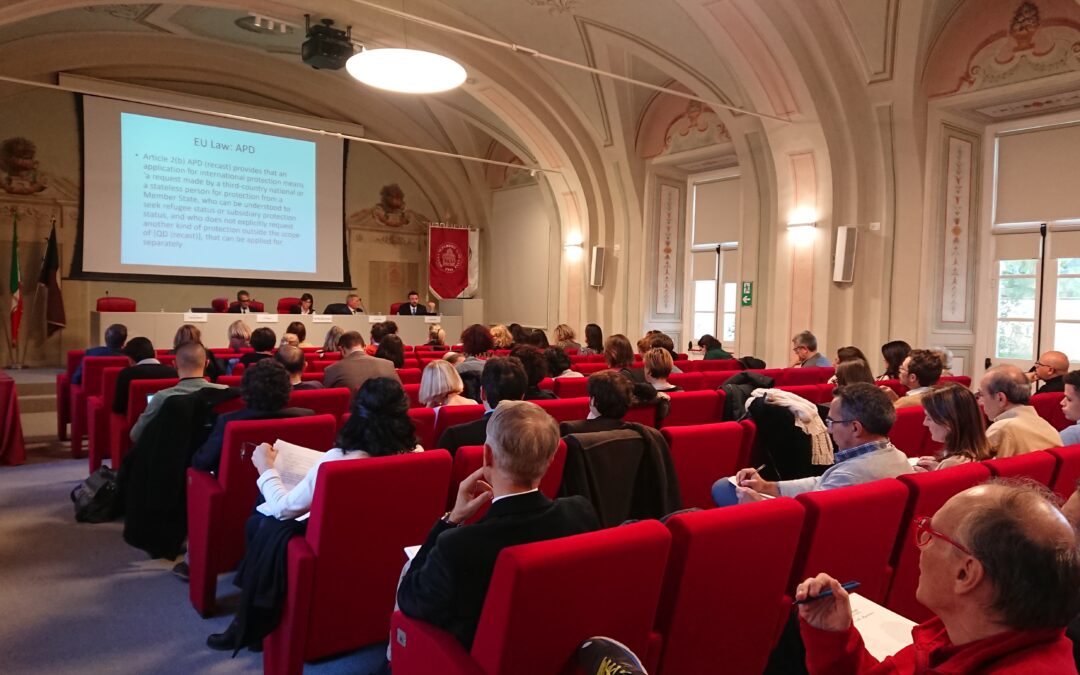
Dec 3, 2019 | Agendas, Events, News
Today, the ICJ together with Scuola Universitaria Sant’Anna and Scuola Superiore de la Magistratura hold a training seminar on access to the asylum procedure and the right to an effective remedy in Pisa, Italy.
The training seminar brings together 65 Italian judges and lawyers specialized in access to international protection. During the two days of training, experts from the CJEU, Italian judiciary and academics, UNHCR and ICJ will deliver the training, bringing international human rights and EU law perspectives to the discussion on Italian law and practice.
Among the issues discussed during the training seminar will be access to the asylum procedure in international and EU law, access to the asylum procedure and accelerated procedures in light of the right to an effective remedy, appeal, legal assistance and legal aid, and interpretation. Further issues including the burden of proof in international protection cases and duties of cooperation with the asylum authority will be examined from the perspectives of judges, of territorial Commissions and lawyers as well as from the international and EU law perspective. Finally, working groups on burden of proof, credibility assessment of asylum seekers and countries of origin of asylum seekers will take place.
See the full agenda here.
This training is a part of FAIR PLUS project. It was carried out with the financial support of the European Union. Its contents are the sole responsibility of ICJ and do not necessarily reflect the views of the European Union.
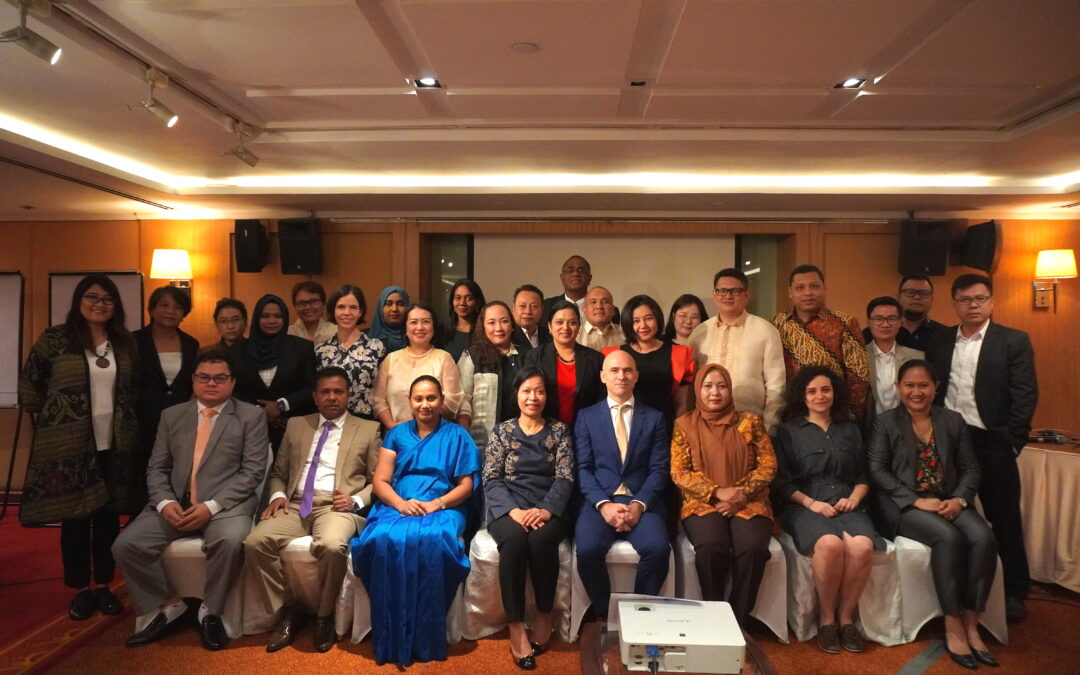
Dec 2, 2019 | Advocacy, News
From 30 November to 1 December 2019, the ICJ and the Raoul Wallenberg Institute of Human Rights and Humanitarian Law (RWI) held the Judges’ Workshop on Adjudicating Environmental Cases with a Gender Perspective, in Bangkok, Thailand.
Judges from Fiji, Maldives, Indonesia, Philippines, Sri Lanka and Cambodia participated in the workshop. The discussions aimed at strengthening judges’ understanding of the relationship between women’s human rights and the right to a healthy environment. Throughout the two-day event, judges exchanged views on and considered cases showing how environmental degradation and climate change have a disproportionately detrimental impact on women, and how these phenomena affect them in a significantly different way as compared to men.
“It is through these gatherings that we learn from each other’s experiences and strengthen each other’s knowledge on this area,” said Frederick Rawski, ICJ’s Regional Director for Asia and the Pacific.
He continued, “We hope that this is the beginning of a greater body of work from judges in this region with a view to ensuring equality before the law and non-discrimination in environmental cases.”
During the workshop, the judges referred to the reference manual, Women’s Human Rights and the Right to a Clean, Safe, Healthy, and Sustainable Environment, which was developed by RWI with ICJ’s expert input. At the end of the workshop, judges agreed they would use this manual as a guide when faced with cases involving women and the right to a clean, safe, healthy and sustainable environment.
Contact:
Boram Jang, International Legal Advisor, International Commission of Jurists, t: +66 63 665 5315, e: boram.jang(a)icj.org
Resources:
To access pictures from the event, click here.








